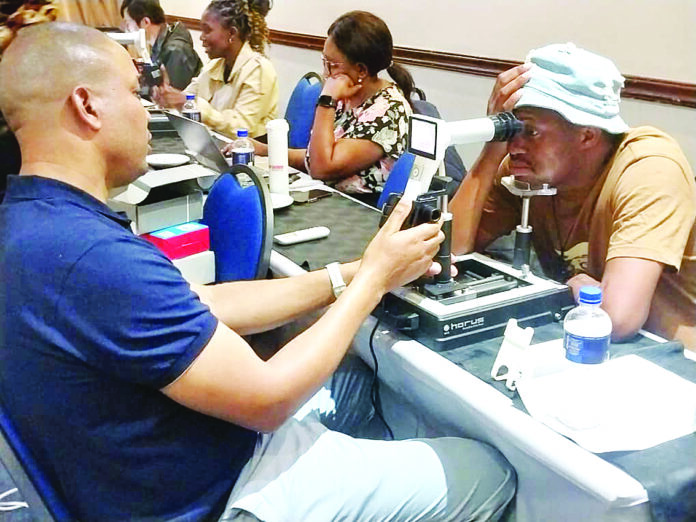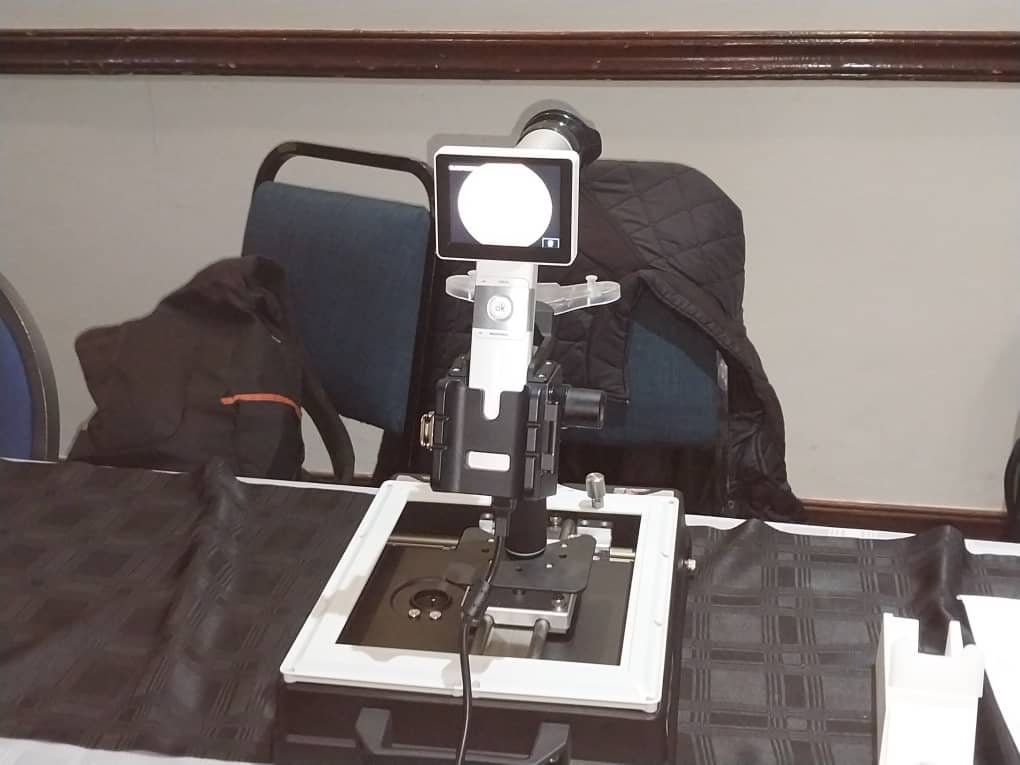
The Republic of China (in Taiwan) through the Taiwan ICDF’s NCD Project has donated six sets of Al-assisted diagnostic equipment for diabetic retinopathy worth E1.2 million.
It will assist in the early detection of diabetes-related complications and further facilitate timely intervention so as to assist the prevention and control of diabetic eye diseases.
The devices were launched yesterday at The George Hotel.
They will be distributed to six health care institutions countrywide namely; Mbabane Government Hospital, Piggs Peak Government Hospital, Dvokolwako Health Centre, Mkhuzweni Health Centre, Mankayane Government Hospital and the Raleigh Fitkin Memorial (RFM) Hospital. The machines will be operated by 20 clinical personnel from central government and regional health facilities who have been trained as seed instructors.
According to Taiwan Technical Mission Project Manager Amon Yang, in April this year, the in collaboration with the ministry of health, selected six professional clinicians to receive a Seed Instructor Training at the National Taiwan University Hospital Hsin-Chu branch in Taiwan.
He said during this training, the professional clinicians observed advanced care for diabetes and hypertension, as well as community health education promotion techniques.
Also Read: PM, MPs clash over NDMA again
“They also focused on learning how to operate the artificial intelligence-assisted diagnostic equipment for diabetic retinopathy, which will soon be introduced to healthcare facilities in Eswatini,” he said.
Yang said as the Prime Minister, Russell Dlamini, recently mentioned that Eswatini should seriously consider recognising non-communicable diseases (NCDs) as a national emergency, this signifies the increasingly serious prevalence of chronic diseases in the country, requiring early intervention to reduce the burden on the healthcare system.
He stated that among the major metabolic chronic diseases, it is estimated that there are over 100 000 individuals living with diabetes.
“Many of these individuals seek treatment too late, leading to complications, especially diabetic retinopathy, which in severe cases can lead to retinal detachment or even blindness,” he said.
He mentioned that the Taiwan ICDF’s Project for Strengthening Metabolic Chronic Disease Prevention and Control Systems in Eswatini, launched in 2024, actively collaborates with the ministry of health to improve coverage of diabetes and hypertension care.
He said this includes early detection of related complications to facilitate timely interventions, to assist Eswatini in strengthening its capacity to prevent and control diabetic eye diseases.
He pointed out that the Minister of Foreign Affairs in Taiwan H. E. Chia-Lung LIN, during his visit to Eswatini in April presented the sets that were launched yesterday to the ministry of health developed by Taiwanese manufacturers.
“This donation was made in conjunction with the Taiwan ICDF’s NCD Project. This equipment is a one-stop fundus examination device that uses Al edge computing for image analysis without requiring an internet connection,” he said.
Yang stated that it was not only easy for clinical personnel to operate, but also allows for immediate interpretation of images, effectively assisting in diagnoses even in the absence of ophthalmologists, thereby increasing the opportunity for early detection of retinopathy among patients and achieving disease prevention goals.
“As an important part of Taiwan’s ‘Smart Healthcare and Health Industry’ cooperation with Eswatini, the Taiwan ICDF’s NCD Project specifically organised the “Al-assisted Diagnostic Fundus Photography Operation Training Workshop from Wednesday until yesterday,” he said.
Yang stated that the workshop trained 20 clinical personnel from central government and regional health facilities as seed instructors during the launch.
He said these seed instructors will subsequently introduce this equipment to six secondary and tertiary hospitals in Eswatini and officially put them into use.
“Looking forward, the Taiwan ICDF will continue to deepen its cooperation with Eswatini in the public health field.
“Through the introduction of smart healthcare, Taiwan will not only improve the quality of healthcare in Eswatini, but also write a new chapter in the friendship between the two countries, working together to safeguard the health and well-being of the people of Eswatini,” he said.








